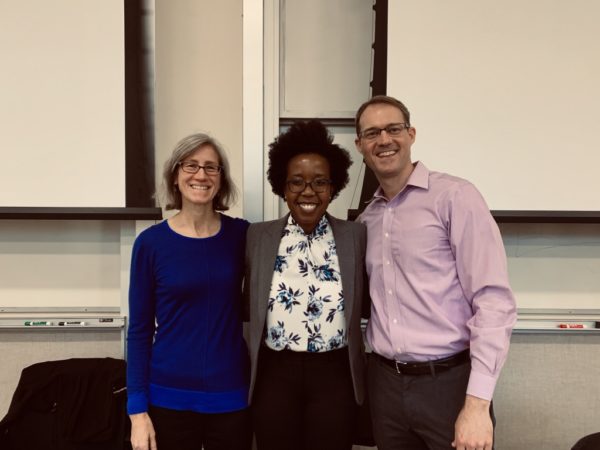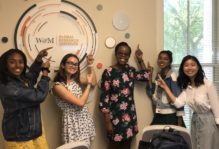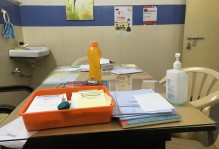Ethical Challenges in Political Science: A Panel Discussion
Featuring Faculty Researchers from the Global Research Institute
By Jane Handa ’21
On Friday, February 15, the Social Science Research Methods Center hosted a panel of researchers at an Ethics in Political Science discussion. There were three panelists: Kelebogile Zvobgo, political scientist and Ph.D. candidate at the University of Southern California, Professor Paula Pickering, director at the Global Research Institute’s own American Bosnian Collaboration, and Professor Phil Roessler, director at the Center for African Development, also housed at GRI.
The discussion was focused on the many ethical challenges one must face in the field, such as the conflict between ethical conduct and the importance of research, professors taking students into the field, and researching in a place where some might not be safe, are important to consider during the research process.
The first question about trade-offs between ethics and the importance of research sparked a lengthy debate that involved insight from all three panelists. Roessler explained the basis for this dilemma: “There is a tradeoff between doing nothing and doing research. It’s hard to do research in ethically uneven terrain. You have to consider that you may be putting you and your participants at risk, and that you may be reinforcing or challenging power structures. But if you do nothing, you are not better understanding the world, so you have to go out and do research.” Pickering further added, “When going into the field, you have to acknowledge your privilege, to realize that you can leave but the people you’re working with can’t. So you have to worry about the safety of the people–you’re asking them for information but you can give them almost nothing back.” All researchers emphasized the importance of research and its necessity in understanding and improving the world. Zvobgo said, “You need to listen deeply and fully, and without judgement. Use the information you get to give back to the community and the wider world.”
Another question posed to the panelists was about taking students into the field, and striking a balance between your responsibilities to conduct research and your responsibilities to help the local communities and the students you are bringing with you. Pickering discussed the importance of relationships in research: “The key to research is community-based research, which is a long, collaborative, compromise-based process. In my research, I made decisions with the local community and the students there as well as with the students here. Bringing students into the research field is more passion-based rather than power-based. Local partnerships are critical to the process, so relationships with local colleagues are more horizontal. You have to get beyond the ivory tower by including local students in your research.” Roessler added, “I see research with undergraduates as a privilege. I like to give them an experience that teaches them about many aspects of the other country and culture.”
Finally, the panelists answered the tough question about how to deal with the fact that certain students may not be safe in a particular location, including women, minority groups, and members of the LGBTQ+ community. “It’s frustrating sometimes to conduct my work in places where I may need a male chaperone to go some places. But that’s the reality of keeping you and your participants safe, which is paramount,” Zvobgo remarked. Roessler added, “I’ve shifted research projects because of those concerns, because no project is worth that risk. It can be a very slow and incremental process, but that’s because you’re doing important things.”





No comments.
Comments are currently closed. Comments are closed on all posts older than one year, and for those in our archive.